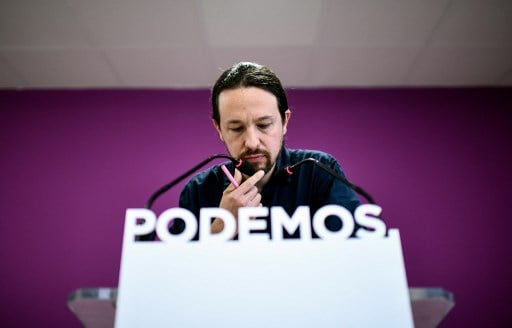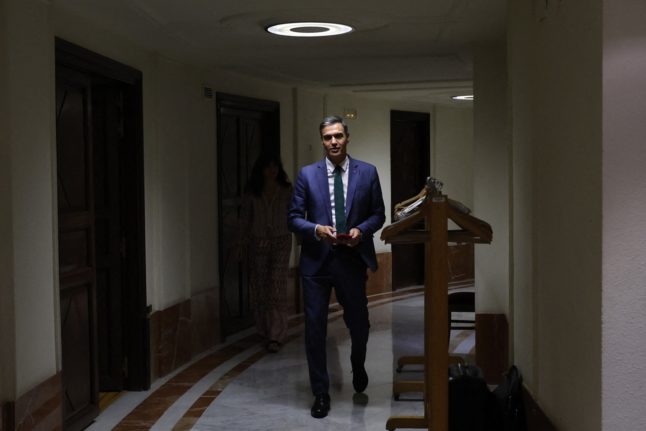The party lost almost all of the mayorships it won in 2015 along with other far-left groups, and captured just 10 percent of the vote in the European elections, compared with 14.3 percent during an April 28th general election.
At the same time the triple polls strengthened acting Prime Minister Pedro Sanchez's Socialists, which placed first in the European elections and won the most votes in 10 of the 12 regions that voted on Sunday.
The results undermined Podemos leader Pablo Iglesias's wish to form a coalition government with the Socialists, which won last month's general election while failing to reach a majority in parliament.
READ MORE:
- OPINION: Why EU results aren't bad news for those of us fighting Brexit
- What you need to know about Spain's 'Super Sunday' results
- Spain's Socialists win big in EU vote
“He is too weakened to demand Pedro Sanchez give him ministries,” Carmen Lumbierres, a political science professor at Spain's Open University UNED, told AFP.
Speaking Monday, Iglesias said “it is obvious that these results are not good”, though he still hoped to join a coalition.
“We most be conscious of what we weigh and try to form a government,” he said.
Podemos has just 42 seats in Spain's 350-seat parliament, down from 71 before the April vote.
In the last municipal elections, Podemos – or parties under its umbrella – swept to power in the cities of Madrid, Barcelona, Valencia, Zaragoza, La Coruña and Cádiz.
But this time round the only mayorship left it the hands of a radical left party linked with Podemos is in Cadiz, José María González, affectionately dubbed Kichi, will have a second term as mayor.
In the regional vote, Podemos made huge losses, dropping a total of 70 seats across all the regions that voted.

In the regional parliament of Madrid, Podemos lost a whopping 20 seats, winning just seven seats this time round compared to the 27 in 2015 – the blame for the losses can be firmly placed at the door of Iglesias's former deputy turned rival, Íñigo Errejón who stood as a candidate with the Mas Madrid party.
European trend
Podemos's collapse mirrors a European trend of declining support for far-left parties.
The European United Left/Nordic Green Left (GUE/NGL), which goups leftist parties in the European parliment, won just 39 seats in this year's European elections, down from 52 previously.
Greek Prime Minister Alexis Tsipras plans to call for early polls after his far-left Syriza party — a Podemos ally — was trounced in European and local elections on Sunday.
In Madrid, incumbent mayor Manuela Carmena who was elected in 2015 on a citizen platform backed by Podemos, won the most votes on Sunday but still lacks a majority.
She will most likely be replaced by the conservative PP candidate, Jose Luis Martinez-Almeida if he is backed by the centre-right Ciudadanos and far-right party Vox parties.
In Barcelona, incumbent Mayor Ada Colau, a former housing activist backed by Podemos, lost to a Catalan separatist Ernest Maragall.
Podemos-backed mayors also lost in Zaragoza, La Coruna and Santiago de Compostela.
Many were victims of divisions over strategy that have plagued the party for the past two years.
In Madrid and Zaragoza, Podemos members presented competing lists.
“Podemos was a victim of an overdose of Game of Thrones,” wrote Enric Juliana, deputy director of Barcelona-based daily La Vanguardia, in an analysis of the party's results.
Many Podemos voters have become disenchanted with the party because it has not remained faithful to the new style of participatory politics that it initially promised to implement, said Lumbierres.



 Please whitelist us to continue reading.
Please whitelist us to continue reading.
Member comments